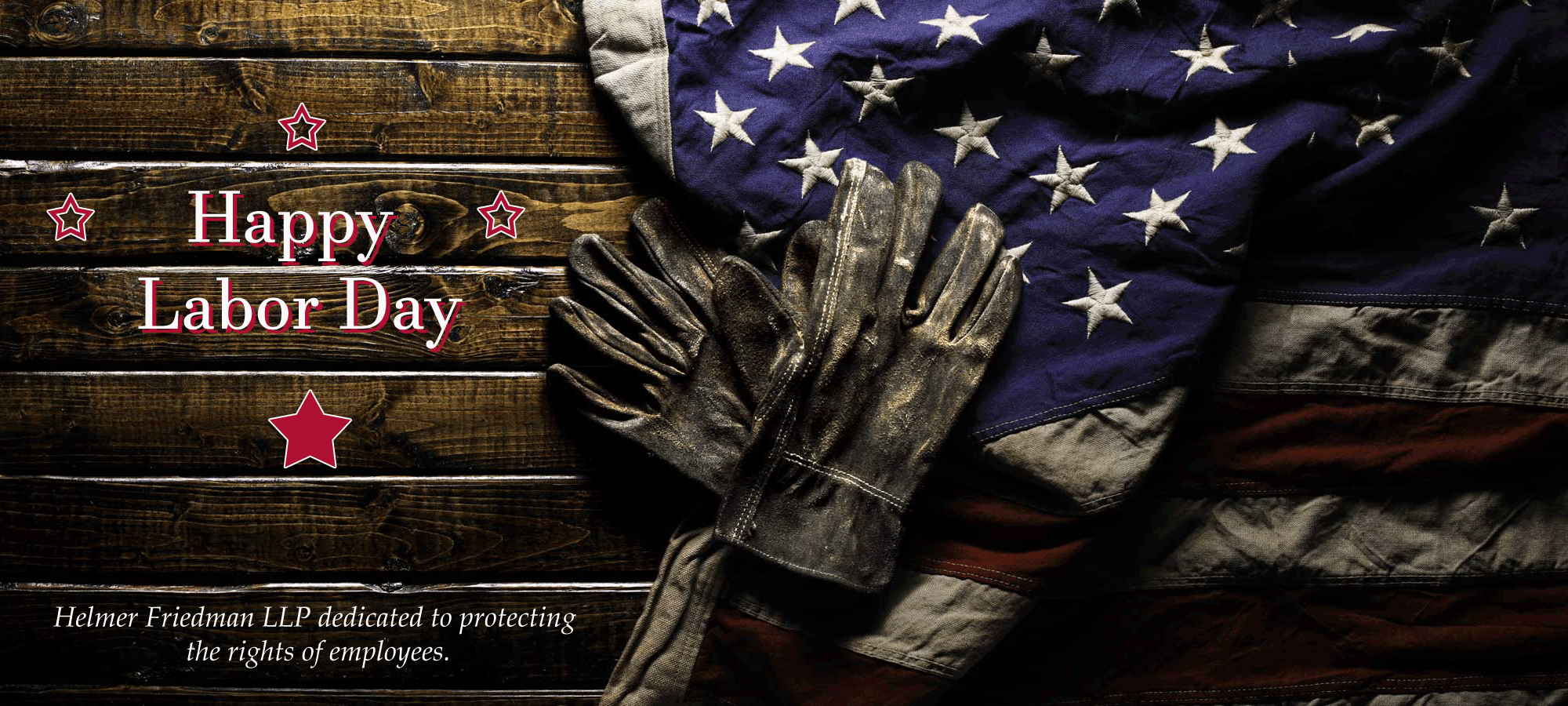In a recent judgment, Didlake, Inc., a well-known government contractor, has been ordered to pay over $1 million for a disability discrimination and retaliation lawsuit. This case has significant implications for employees with disabilities, highlighting the importance of understanding and protecting one’s rights under the law. In this blog post, we will explore the case details, the violations committed by Didlake, Inc., and what this means for disabled employees. Whether you are an employee with a disability or know someone who is, this information is crucial.
The Judgment Against Didlake, Inc.
In a recent court ruling, Didlake, Inc. was found guilty of violating the Americans with Disabilities Act (ADA). The company, which provides janitorial and maintenance services to federal worksites throughout Virginia, Maryland, and the District of Columbia, was ordered to pay more than $1 million in damages. This decision serves as a powerful reminder of the legal protections available to disabled employees and the severe consequences for companies that fail to comply.
Who is Didlake, Inc.?
Didlake, Inc. is a government contractor that specializes in providing janitorial and maintenance employees to various federal worksites. Their operations span across Virginia, Maryland, and the District of Columbia. Despite their significant role in the workforce, the company has faced serious allegations regarding their treatment of disabled employees.
Denial of Reasonable Accommodations
One of the key issues in the lawsuit was Didlake, Inc.’s denial of reasonable accommodations to deaf and hard-of-hearing employees. Under the ADA, employers are required to provide reasonable accommodations to employees with disabilities, ensuring they can perform their job duties effectively. However, Didlake, Inc. failed to meet this requirement by refusing to hire an ASL interpreter for safety meetings, leading to significant challenges for affected employees.
Violation of the Americans with Disabilities Act
By denying these accommodations, Didlake, Inc. violated the ADA, which is designed to protect disabled employees from discrimination in the workplace. This violation not only highlights the company’s disregard for legal requirements but also underscores the importance of understanding one’s rights under the ADA.
Firing Employees Who Requested Medical Leave
Another major violation by Didlake, Inc. involved firing employees who requested medical leave. The ADA protects employees’ rights to request reasonable medical leave without fear of retaliation. However, Didlake, Inc. fired employees who exercised this right, further compounding their legal troubles.
Further ADA Violations
The act of firing employees for requesting medical leave is a clear violation of the ADA. This action not only strips employees of their legal rights but also creates a hostile work environment for those with disabilities. Such behavior is unacceptable and highlights the need for ongoing vigilance and legal protection.
Implications for Disabled Employees
The judgment against Didlake, Inc. has far-reaching implications for disabled employees. It serves as a stark reminder that employers must adhere to ADA regulations and provide necessary accommodations. For employees, this case underscores the importance of knowing and asserting their rights in the workplace.
Protecting Your Rights
If you or someone you know has experienced similar discrimination, it is essential to take action. Consulting with an employment attorney can provide valuable guidance and help protect your rights under the law. An attorney can assist in navigating the complexities of the ADA and ensure that justice is served.
The Importance of Legal Protections
The ADA and other federal laws provide crucial protections for disabled employees. These laws are designed to ensure that all employees have equal opportunities and are treated with dignity and respect in the workplace. Understanding these legal protections is essential for both employees and employers.
Educating Employers
Employers must be educated about their responsibilities under the ADA and other relevant laws. Providing reasonable accommodations and respecting employees’ rights are not just legal requirements but also ethical obligations. Employers who fail to meet these standards risk severe legal and financial consequences.
Financial Assistance for Employers
Employers may worry about the costs associated with providing accommodations under the ADA, but various financial assistance options are available to help offset these expenses. One such resource is the Work Opportunity Tax Credit (WOTC), which offers tax incentives to employers who hire individuals from targeted groups, including those with disabilities. Additionally, the Disabled Access Credit provides a tax credit for small businesses that incur expenses for making their facilities accessible, including the cost of installing ramps, modifying restrooms, or purchasing adaptive equipment. The Barrier Removal Tax Deduction allows any business to deduct expenses related to removing architectural and transportation barriers. By taking advantage of these financial programs, employers can foster an inclusive workplace without bearing a significant financial burden.
Steps to Take if You Face Discrimination
If you believe you have been discriminated against due to a disability, there are several steps you can take. First, document the incidents and gather any evidence that supports your claim. Next, file a complaint with the EEOC or your local fair employment practices agency. Finally, consult with an employment attorney to explore your legal options.
Seeking Legal Advice
An employment attorney can provide invaluable assistance in navigating your case. They can help you understand your rights, gather evidence, and represent you in legal proceedings. Taking prompt action is crucial to ensuring your rights are protected and achieving a favorable outcome.
Building a Support Network
Dealing with workplace discrimination can be challenging, but having a strong support network can make a significant difference. Reach out to friends, family, and support groups for emotional support and practical advice. Connecting with others who have faced similar challenges can provide encouragement and valuable insights.
Resources for Support
Numerous organizations and support groups are dedicated to helping disabled employees. These resources can offer guidance, advocacy, and a sense of community. Utilizing these resources can empower you to take action and protect your rights.
- Job Accommodation Network (JAN)
JAN provides free, confidential guidance on workplace accommodations and employment issues related to disability. Their expert consultants can help disabled employees and employers understand their rights and responsibilities.
- Disability Rights Education and Defense Fund (DREDF)
DREDF is a leading national civil rights law and policy center directed by individuals with disabilities and parents who have children with disabilities. They offer resources and advocacy to protect the rights of disabled employees.
- Equal Employment Opportunity Commission (EEOC)
The EEOC is a federal agency that enforces laws against workplace discrimination, including disability discrimination. They offer guidelines, fact sheets, and other helpful resources on their website.
- American Association of People with Disabilities (AAPD)
AAPD works to increase the economic power and influence of people with disabilities. They provide various resources, including career and leadership programs that can empower disabled employees in the workplace.
- National Organization on Disability (NOD)
NOD focuses on increasing employment opportunities for disabled individuals. They offer comprehensive resources and services to help navigate workplace challenges and promote an inclusive work environment.
- Local Vocational Rehabilitation (VR) Agencies
VR agencies offer services to help disabled individuals prepare for, obtain, maintain, or regain employment. Services can include career counseling, job placement assistance, and training programs.
Utilizing these resources can empower you to take action and protect your rights in the workplace.
The Path Forward
The judgment against Didlake, Inc. marks a significant victory for disabled employees and serves as a reminder of the importance of legal protections. Moving forward, it is essential for both employees and employers to remain vigilant and proactive in ensuring a fair and inclusive workplace.
Taking Action
For employees, understanding and asserting your rights is crucial. For employers, providing reasonable accommodations and respecting employees’ rights are fundamental to maintaining a positive work environment. Together, we can work towards a future where all employees are treated with dignity and respect.
Conclusion
The Didlake, Inc. case highlights the serious consequences of failing to comply with the ADA and the importance of protecting the rights of disabled employees. By understanding and asserting your rights, seeking legal advice when necessary, and connecting with supportive resources, you can take meaningful steps to ensure a fair and inclusive workplace. If you or someone you know has experienced discrimination, do not hesitate to take action and seek the justice you deserve.
For those looking for further assistance, consider consulting with an employment attorney or reaching out to organizations dedicated to advocating for disabled employees. Together, we can create a more inclusive and equitable work environment for all.
Like this:
Like Loading...










